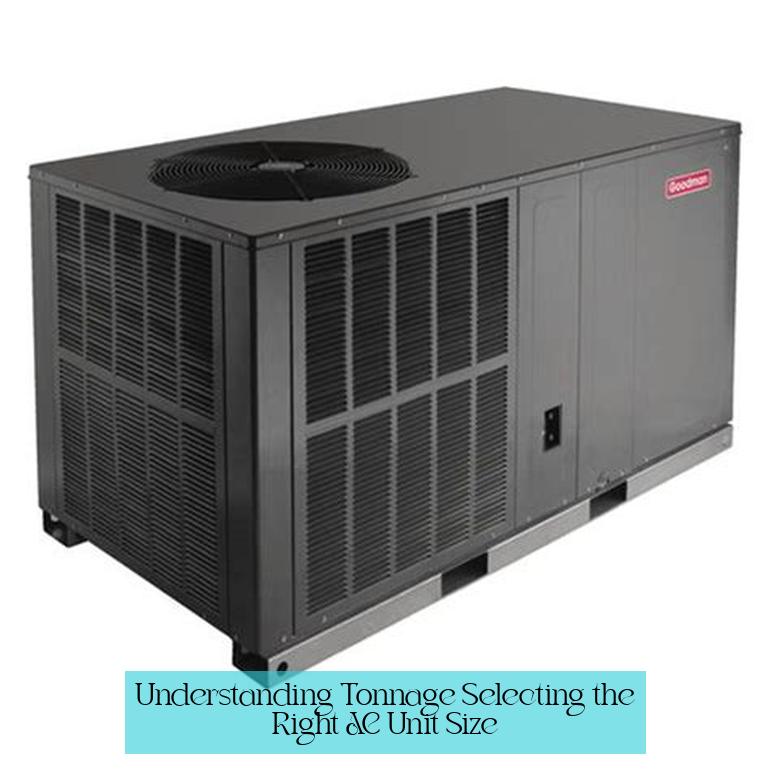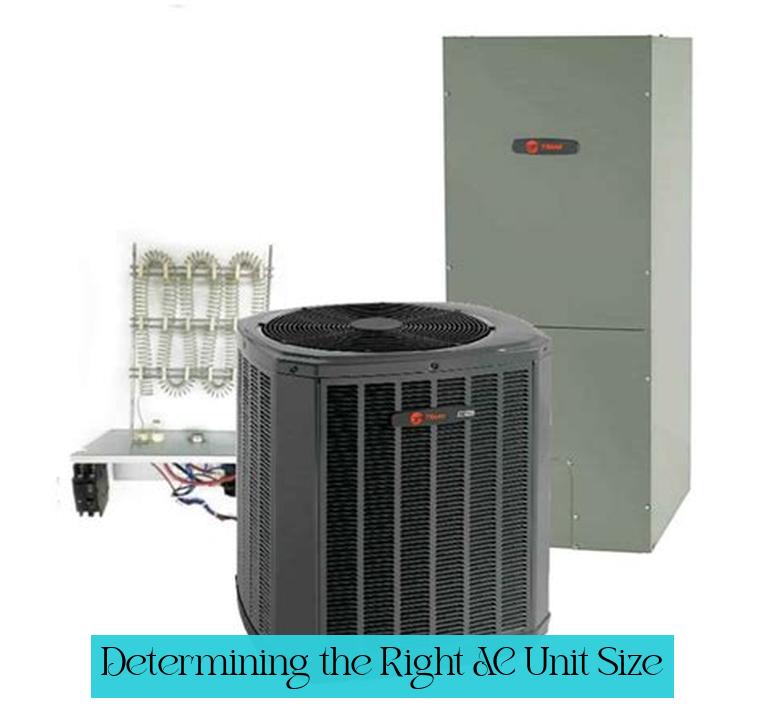Is your search for the perfect AC unit size leaving you feeling as lost as a snowball in summer? Fear not, because we’re about to demystify the enigma of tonnage and square footage. Picture this: you’re trying to cool your 1500 square-foot haven, and you’re scratching your head wondering, “What size AC unit do I need?” Well, the answer lies in understanding the relationship between tonnage and square footage. Join us as we unravel the secrets of selecting the right 2.5 ton AC unit for your 1201 to 1500 square feet space. It’s time to turn up the cool factor in your home without breaking a sweat!
Key Takeaways
- A 2.5 ton AC unit is suitable for cooling spaces ranging from 1201 to 1500 square feet.
- For a 1500 square-foot house, a 3-ton (36,000 BTU’s) air conditioner is recommended for efficient cooling.
- When considering the size of an AC unit, it’s important to match the square footage to an HVAC size chart to determine the appropriate tonnage.
- Understanding the square footage that a capable AC can cover is crucial when selecting the right unit for your home.
- For spaces between 1201 and 1500 square feet, a 2.5 ton AC unit is the ideal choice for efficient cooling.
- It’s advisable to consult with a trained air conditioning professional to perform a BTU calculation to ensure the right AC unit size for your home.
Understanding Tonnage: Selecting the Right AC Unit Size
— Ultimate Central AC Size Chart: Your Guide to Choosing the Right Unit for Your Home

When it comes to ensuring efficient cooling for your home, selecting the appropriate air conditioning (AC) unit size is paramount. Central to this decision is understanding the concept of tonnage, which measures an AC unit’s cooling capacity. A 1-ton AC unit can effectively cool up to 1000 square feet, while a 2-ton unit can handle up to 2000 square feet. For spaces between 1201 and 1500 square feet, a 2.5-ton AC unit emerges as the ideal choice.
Deciding on the appropriate AC unit size is crucial for both efficiency and cost-effectiveness. An oversized unit will result in excessive cooling, leading to discomfort and higher energy bills. Conversely, an undersized unit will struggle to maintain a comfortable temperature, leading to insufficient cooling and increased wear and tear.
Factors Influencing AC Unit Size
Determining the ideal AC unit size for your home involves considering several key factors:
-
Square Footage: The size of your home is the primary determinant of the required AC unit tonnage. As a general rule, a 2.5-ton AC unit can effectively cool spaces ranging from 1201 to 1500 square feet.
Mastering the 2.5 Times Monthly Rent Rule: Your Guide to Meeting and Exceeding It
-
Ceiling Height: High ceilings necessitate greater cooling capacity. For rooms with ceilings higher than 8 feet, consider increasing the AC unit tonnage by 0.5 tons.
-
Insulation: Proper insulation plays a crucial role in maintaining a comfortable indoor temperature. Good insulation reduces heat gain, allowing for a smaller AC unit.
-
Number of Windows and Doors: Homes with numerous windows and doors experience increased heat gain. To compensate, consider increasing the AC unit tonnage by 0.5 to 1 ton.
-
Climate Zone: Different climate zones have varying cooling requirements. Homes in warmer regions may require a larger AC unit than those in cooler regions.
Determining the Right AC Unit Size

To accurately determine the appropriate AC unit size for your home, follow these steps:
-
Calculate Square Footage: Measure the square footage of your home, including all heated and cooled areas.
Trending Now — Ultimate Guide: Choosing the Right Size Air Conditioner for a 1,500 Square Foot House
-
Consider Other Factors: Take into account ceiling height, insulation, windows, doors, and climate zone.
-
Refer to an HVAC Size Chart: HVAC size charts provide guidelines for selecting the appropriate AC unit size based on square footage and other factors.
-
Consult a Professional: For a precise calculation, consult a qualified HVAC technician who can perform a load calculation considering all relevant factors.
Benefits of an Appropriately Sized AC Unit
Choosing the correct AC unit size offers numerous benefits:
-
Improved Comfort: An appropriately sized AC unit ensures consistent cooling throughout your home, maintaining a comfortable indoor temperature.
-
Energy Efficiency: A properly sized unit operates efficiently, reducing energy consumption and lowering utility bills.
-
Extended Lifespan: Properly sized AC units experience less wear and tear, resulting in a longer lifespan.
-
Cost Savings: Selecting the right size AC unit can save you money on both installation and energy costs.
1. What square footage is suitable for a 2.5 ton AC unit?
An area ranging from 1201 to 1500 square feet is ideal for a 2.5 ton AC unit.
2. How does ceiling height affect the AC unit tonnage?
Rooms with ceilings higher than 8 feet may require an increase in AC unit tonnage by 0.5 tons to accommodate the greater cooling capacity needed.
3. What role does insulation play in determining the AC unit size?
Proper insulation reduces heat gain, allowing for a smaller AC unit to effectively maintain a comfortable indoor temperature.
4. What is the significance of the number of windows and doors in relation to AC unit tonnage?
Homes with numerous windows and doors may require an increase in AC unit tonnage by 0.5 to 1 ton to compensate for the increased heat gain.
5. How does climate zone influence the size of the AC unit?
Homes in warmer regions may require a larger AC unit than those in cooler regions due to varying cooling requirements in different climate zones.
6. What is the recommended AC unit size for a 1500 square-foot house?
For efficient cooling in a 1500 square-foot house, a 3-ton (36,000 BTU’s) air conditioner is recommended.










